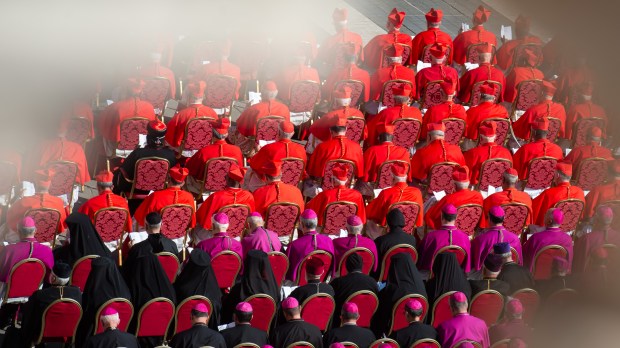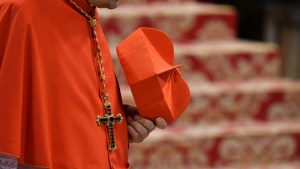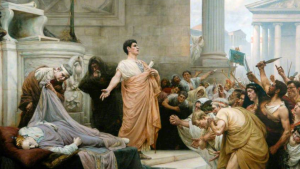It was October 21, 2003. John Paul II, exhausted by a quarter-century of pontificate, held his final consistory. He appointed 31 cardinals, including one in pectore. He didn’t announce the identity of the person in question before he died a year and a half later. Consequently, in this unfortunate case the person was never publicly granted the dignity or rights of a cardinal.
The origin of cardinals in pectore
In 1423, Pope Martin V invented the practice by naming two cardinals in pectore: Domingo Ram i Lanaja and Domenico Capranica. Their identities would be revealed some seven years later, in 1430. However, the first pontiffs to adopt this usage entrusted their names only to the other cardinals, in secret. This enabled Eugene IV to add to the Sacred College in 1432 the French cardinal Guillaume de Montfort, created in pectore in 1430 by his predecessor, who had died suddenly. Later, the names of in pectore cardinals were known only to the pontiff.
The aim was to prevent temporal authorities opposed to the appointment of cardinals who were hostile to them from attacking them or trying to influence the pope’s decision. With the French Revolution and its anticlericalism, the in pectore tradition became more useful than ever.
Frequent recourse until the 19th century
Throughout the 18th century, the practice was common due to the ever-growing hostility of European governments to the Church. With the exception of Innocent XIII, who reigned for less than three years, the seven other pontiffs of the 18th century appointed numerous cardinals in pectore, including Clement XI who did so 15 times. Pius VI made 13 such appointments.
Following the French Revolution (1789-1799), Pius VII, who had a difficult relationship with Napoleon I, had to appoint 26 cardinals in pectore, many of them French. When Gregory XVI became pope in 1831, he broke all records, appointing 41 of the 81 cardinals in pectore in just 15 years of pontificate.
John Paul II’s cardinals in pectore
Elected pope in the midst of the Cold War, the Polish pope made the naming of cardinals in pectore the subtle hallmark of his consistories. As early as June 1979, when he created his very first cardinals, he made the Chinese bishop Ignatius Kung Pin-mei a cardinal in pectore. In view of Beijing’s adversity towards this prince of the Church, his identity was not revealed until 1991. The delay was significant, because practice dictates that the beneficiary only exercises his status once the announcement has been made.
Elevated to the cardinalate in 1998, Ukrainian prelates Marian Jaworski and Latvian Jānis Pujats would have to wait three years before donning their red birettas in 2001. And for good reason: Their dioceses were on the doorstep of the powerful Moscow Orthodox Patriarchate, with which John Paul II did not want to create conflict.
Sudden obsolescence?
This old tradition has not really fallen into disuse, even if Benedict XVI never used it and Francis hasn’t yet.
Pope Francis probably hasn’t felt the need to employ it. Beijing and the Holy See have timidly pacified their relations with an agreement in 2018. However, given the tensions that have resurfaced around the world since the war between Moscow and Kiev, or even the situation in Nicaragua, it’s not entirely out of the question that cardinals in pectore may resurface.



